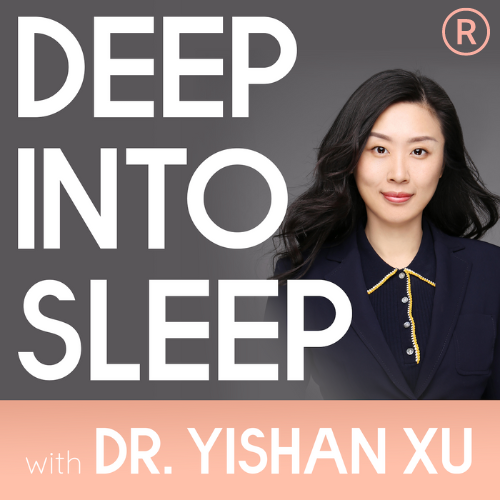Ep109: Sleep Trackers: Why You Should Stop Controlling Sleep - With Jesse Cook
OVERVIEW
If you look around you, it is very noticeable that almost everything is digital. There are continuous inventions of machines, equipment, and gadgets to make people's lives easier. One of the fast-growing inventions is health gadgets that give people the power to control and see their health data. Sleep trackers are one of those it allows you to monitor and see if you are making progress when it comes to your sleep quality. But just like any human invention, you might also be asking if these sleep wearables are accurate. Does it really help you in fixing your sleep issues?
For this week’s episode, I will be joined by Ph.D. candidate, Jesse Cook, a 5th-year Clinical Psychology student at the University of Wisconsin-Madison. He specializes in sleep research and has a supplementary line of research that focuses on the utility and shortcomings of commercially available sleep tracking technology. In this interview, Jesse will share if a person should really rely on sleep trackers when it comes to improving and measuring sleep. He will also impart other aspects of sleep trackers that you should know before considering using them or buying them. Tune and learn why controlling sleep is never a good idea.
Jesse earned his Bachelor's degree in Psychology with a double minor in Chemistry and Classical Studies at the University of Arizona (2012). Jesse began his Sleep journey as a research assistant in Dr. Richard Bootzin's Sleep Research Laboratory, where he developed a fundamental understanding of sleep methodology, utilization and analysis of sleep diary and actigraphic data, and proficiency with polysomnographic (PSG) application and interpretation using 6-channel electroencephalography (EEG). He joined Dr. Plante's Laboratory in June of 2013 as a Research Specialist within the Department of Psychiatry. In Fall of 2017, Jesse began his pursuit of a doctoral degree in Clinical Psychology at the University of Wisconsin-Madison, under the primary mentoring of Dr. Plante. Jesse's primary research program focuses on improving the assessment, classification, and treatment of hypersomnolence without known etiology. Additionally, he has developed a supplementary program purposed to clarify the ability of commercially available sleep tracking devices as sleep-wake estimators, for both clinical, research, and recreational purposes. Jesse previously served as the Sleep Research Society Trainee Member At-Large (2020-2021) and currently serves on the Communications Committee. Looking ahead, Jesse intends to pursue a career that bridges the clinical, research, and industry domains. He strives to be licensed as a Clinical Psychologist, with a specialty in Behavioral Sleep Medicine.
WHAT WILL WE LEARN
01:57 Who is Jesse Cook
04:06 What makes Jesse interested in sleep medicine
07:10 Is sleep trackers reliable in measuring sleep
10:45 The truth about sleep trackers
13:48 The negative effects of over tracking sleep performance
16:24 What are the different sleep stages
21:45 Is dreaming a sign of bad sleep
24:42 Sleep as the foundation of health
26:37 How to know if you have a REM sleep
29:24 How sleep trackers data can affect your sleep perspective
31:17 How to control sleep in a good way: Sleep will find the body and the mind
33:29 Jesse's advice to people who wants to have a better sleep
RESOURCES
Thank You for Listening!
Newsletter and Download Free Sleep Guidence E-Book:
CBT-I Courses:
Podcast Links:
Apple Podcast: https://podcasts.apple.com/us/podcast/deep-into-sleep/id1475295840
Google Podcast: https://podcasts.google.com/search/deepintosleep
Spotify: https://open.spotify.com/show/2Vxyyj9Cswuk91OYztzcMS
iHeartRadio: https://www.iheart.com/podcast/269-deep-into-sleep-47827108/
Support our Podcast: https://www.buymeacoffee.com/dryishan
Leave us a Rating: https://podcasts.apple.com/us/podcast/deep-into-sleep/id1475295840

